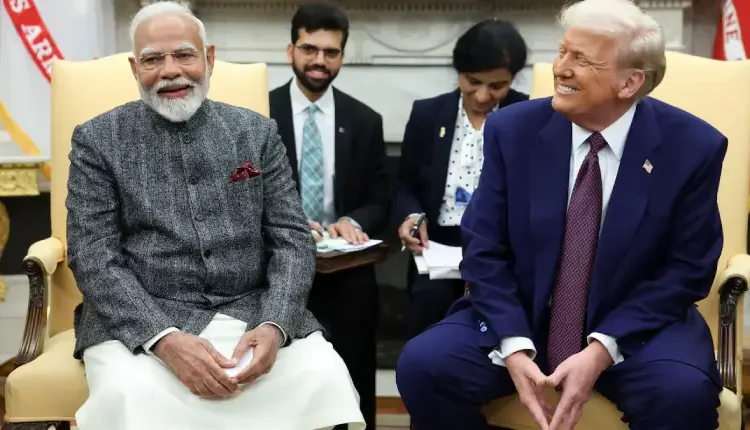New Delhi: With new tariffs set to kick in on August 1, 2025, there’s growing optimism about a breakthrough in trade negotiations between India and the United States. Sources close to the discussions suggest a deal could be inked soon, potentially easing tensions that have simmered for months.
Former President Donald Trump, in a recent statement reported by Reuters, hinted at the possibility. “We’re going to do another trade deal, and it might be with India,” he said, underscoring Washington’s eagerness to expand market access. Yet, one sticky issue continues to hold things up: the importation of American dairy products, which some in India label as “non-vegetarian milk.”
At the heart of the dispute is the U.S. push for India to liberalize its agriculture and dairy markets. American officials want easier entry for their milk, cheese, and other dairy items, arguing it would boost consumer choice and trade flows. India, however, has balked at this, citing deep-seated cultural and dietary sensitivities.
In the U.S., dairy cows are often fed supplements containing animal byproducts like blood from pigs or horses, fish meal, or even rendered fats from various animals—including poultry, horses, and sometimes pets, according to a 2004 report from the Seattle Post-Intelligencer. While milk is traditionally seen as vegetarian worldwide, these feeding practices clash with India’s strong vegetarian ethos, where many view such products as impure or non-vegetarian. New Delhi has firmly rejected imports on these grounds, prioritizing public health and cultural values over compromise.
Both nations rely heavily on their dairy sectors. India’s industry supports over 80 million jobs and feeds a population of 1.4 billion. Opening the floodgates to U.S. imports could devastate small-scale farmers, who dominate the market.
A State Bank of India analysis warns that cheaper American dairy could slash local milk prices by up to 15%, leading to annual losses of around 1.03 trillion rupees for producers. This fear has kept India defensive, dismissing U.S. claims that these restrictions amount to unfair trade barriers. As talks intensify, the outcome could reshape bilateral ties—and the plates of millions.



Comments are closed.